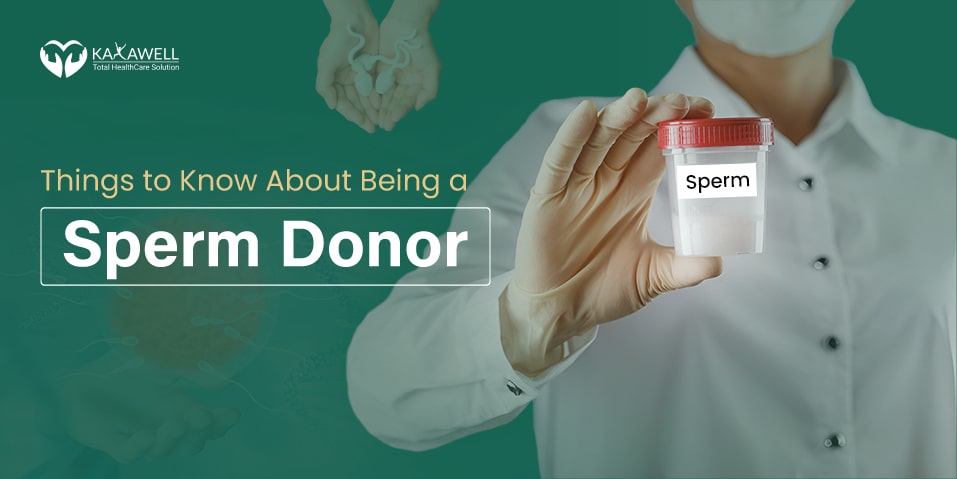Things to Know About Being a Sperm Donor
Donating sperm is a generous act, enabling couples with fertility problems to have children. However, data shows that only 4% of men who want to donate sperm actually go through with it.
Now, if you are considering becoming a donor and enjoying both altruistic and monetary rewards from it, you need to comprehend the procedure thoroughly along with its needs and possible consequences.
In this article, we will take you through all the important parts of sperm donation. This way, you can make your choice with good understanding.
Understanding the Requirements
There are several criteria you need to fulfil before becoming a sperm donor. Usually, most sperm banks and fertility clinics have strict age limits. They want donors who fall between the ages of 18 and 39 because this assures they are in their best stage both fertility- and health-wise. Moreover, donors need to pass through comprehensive health checks. This includes going over their medical past, having a physical examination, and doing tests for genetic problems as well as sexually transmitted infections (STIs).
Education and personal habits are also taken into account. Some clinics prefer donors with higher education and no past drug or alcohol abuse. Lifestyle elements, like good eating habits and regular exercise routines, may have an impact on suitability too. These strict rules are there to make sure the sperm is healthy and of good quality, giving the best possible opportunity for a successful pregnancy.
The Donation Process
The process of sperm donation is more complex than it appears. At first, people who want to donate must complete thorough questionnaires about their health, way of life, and family background. If they are accepted after the initial evaluation, they go through a set of medical checks and conversations.
The donor, when accepted, goes to the clinic often to give sperm samples. To maintain good quality samples, people who give them are usually told to avoid ejaculation for two to five days before they come to visit. Afterwards, the gathered sperm is checked for movement, quantity, and shape. If it passes all checks, lab specialists freeze it and keep good samples for later usage.
Legal and Ethical Considerations
Sperm donation requires careful legal and ethical consideration, with anonymity playing an increasingly critical role. Donors often choose between remaining anonymous or making open donations in which potential offspring might contact them as adults. Either decision could have lifelong ramifications for both themselves as donors as well as any children born from these efforts.
Legal agreements are also crucial. Donors typically sign contracts waiving their parental rights and responsibilities, ensuring they have no legal claims or obligations to any resulting offspring. It’s essential for donors to fully understand and agree to these terms before proceeding.
Ethically, sperm donation raises challenging dilemmas between its donors, recipients, and offspring. Open communication and clear agreements may help manage these complex issues more smoothly. Donors should keep in mind their emotional impact on themselves and any offspring when making their decision.
Compensation and Commitment
Financial compensation is often an attractive incentive for sperm donors. Although amounts vary according to clinic and country, typically between $50 and $100 are offered per donation as compensation. This should not serve as their main income source but instead, be seen as reimbursement for time and effort invested by donors.
Being a sperm donor takes extensive commitment, from screenings and regular donations over multiple months to adhere to lifestyle guidelines that may impact sperm quality.
The Impact on Recipients
Sperm donation is how many recipients achieve parenthood, something they might not be able to experience without it. People who donate sperm are very important in helping others and couples overcome problems with having babies. The feeling of building a family can be very satisfying because you know that your part has made it possible.
People who receive sperm donation can be single women, same-sex couples, or heterosexual couples where the man has fertility issues. Each person’s path is different and donors should understand the variety of needs and experiences of those who benefit from their giving.
Emotional gratitude from recipients can be immense. Some clinics facilitate anonymous letters or updates from families that have used donor sperm, providing donors with insight into the lives they helped shape through donation. Even indirect connections like these are powerful affirmations of its positive influence.
Bottom Line
Being a sperm donor is not an easy thing. It requires serious thinking about many aspects. You have to understand the strict conditions, go through a detailed donation procedure, and manage legal and moral matters.
Although money and its profound impact on recipients are important aspects that play significant roles, the emotional and psychological effects shouldn’t be forgotten either. In the end, choosing to be a sperm donor is a very individual decision that can provide great fulfilment by assisting people in realizing their wish for parenthood.
Read More: Talk to our Healthcare Experts


